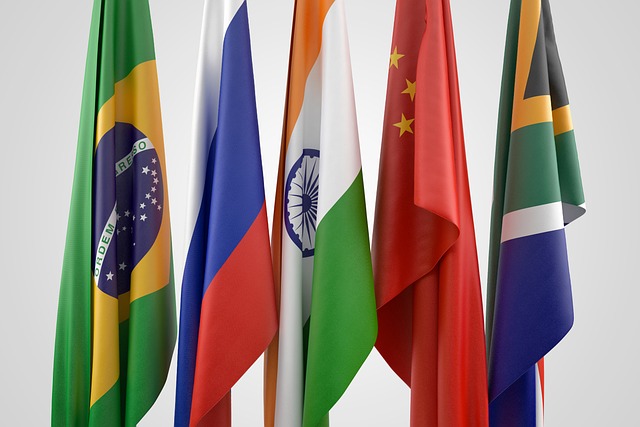Theme:
- The 15th BRICS summit took place in Johannesburg, South Africa. The event, held from 22 August 2023 to 24, August 2023, marked a pivotal moment for the alliance as member countries announced their decision to expand the organization. This expansion reflects the group’s ongoing evolution and strategic efforts to broaden its influence on the global stage.
Background:
- The original BRICS members included Brazil, Russia, India, China, and South Africa.
- The recent expansion of BRICS to include Iran, Saudi Arabia, UAE, Argentina, Ethiopia, and Egypt, reflects a broadening of the alliance’s geographic and economic scope.
- This expansion underscores BRICS’ intent to be more inclusive and representative of global economic trends.
Motivations for BRICS Expansion:
- Economic Growth: BRICS members recognize the potential for enhanced economic cooperation through the exchange of goods, services, and investment. By including countries with significant markets and resources, BRICS can create new avenues for economic growth and diversify its trade relationships. The expansion of BRICS has increased the possibility of the bloc using a common or new currency for trading between them, in a bid to ditch the dollar.
- Political Influence: The enlarged BRICS group strengthens its collective political influence by incorporating countries with diverse diplomatic priorities. These new members can contribute to the alliance’s efforts to challenge Western hegemony and advocate for a more multipolar global order.
- Security Cooperation: The BRICS expansion allows for increased security cooperation, especially in regions prone to conflict and instability. Collaborative efforts can lead to greater stability, peacekeeping initiatives, and counter-terrorism measures among member states.
Potential Benefits of BRICS Expansion:
- Increased Trade and Investment: The inclusion of countries like Saudi Arabia, UAE, and Iran can expand trade opportunities, strengthen investment ties, and create new markets for member states. This growth in economic interaction can drive economic development and prosperity within the alliance.
- Enhanced Cooperation on Development Projects: With more members than before, BRICS can pool more resources and expertise to address development challenges, such as infrastructure, healthcare, and education. Joint projects can lead to inclusive growth and improved living standards.
- Stronger Voice in Global Affairs: The expansion of BRICS increases the group’s demographic, economic, and political representation, bolstering its ability to shape global agendas and advocate for reforms in international institutions.
Challenges to BRICS Expansion:
- Differences in Economic Development: The diverse economic conditions among member states can lead to varying priorities and expectations. Bridging the development gaps requires effective mechanisms for equitable cooperation and resource allocation.
- Political Instability in Some Member States: Political instability in certain member states, such as Ethiopia and Iran, can impact the alliance’s ability to work cohesively on common objectives. Managing internal challenges is crucial for sustained cooperation.
- Resistance from Western Countries: The expansion of BRICS challenges the dominance of Western powers in global affairs. This may result in opposition and attempts to undermine the alliance’s initiatives through economic pressure or diplomatic tactics.
- The dominance of China: China’s GDP share in the BRICS before the expansion was 70.05%, and after the expansion, it is 62.92%, which is still the biggest share within the group. This clear dominance of China geopolitically as well as economically over BRICS gives China more influence over the decision-making process of BRICS, which is a major challenge for other member countries.
Conclusion:
With the inclusion of Iran, Saudi Arabia, the UAE, Argentina, Ethiopia, and Egypt into the BRICS, it has made the alliance a more powerful force with more political influence and economic opportunities. The alliance brings together a diverse group of countries with different strengths, which can help to find innovative solutions to global challenges. While there may be challenges in integrating these new members, the potential gains from their diverse perspectives and collective economic strength make this expansion a transformative event that could reshape global dynamics.
Image by kirill_makes_pics from Pixabay
Your Turn…
What’s your take on this topic? Express your point of view in the comment section below. Subscribe to our blog to read answers to the trending GD topics.
Copyright @ Group Discussion Ideas.

